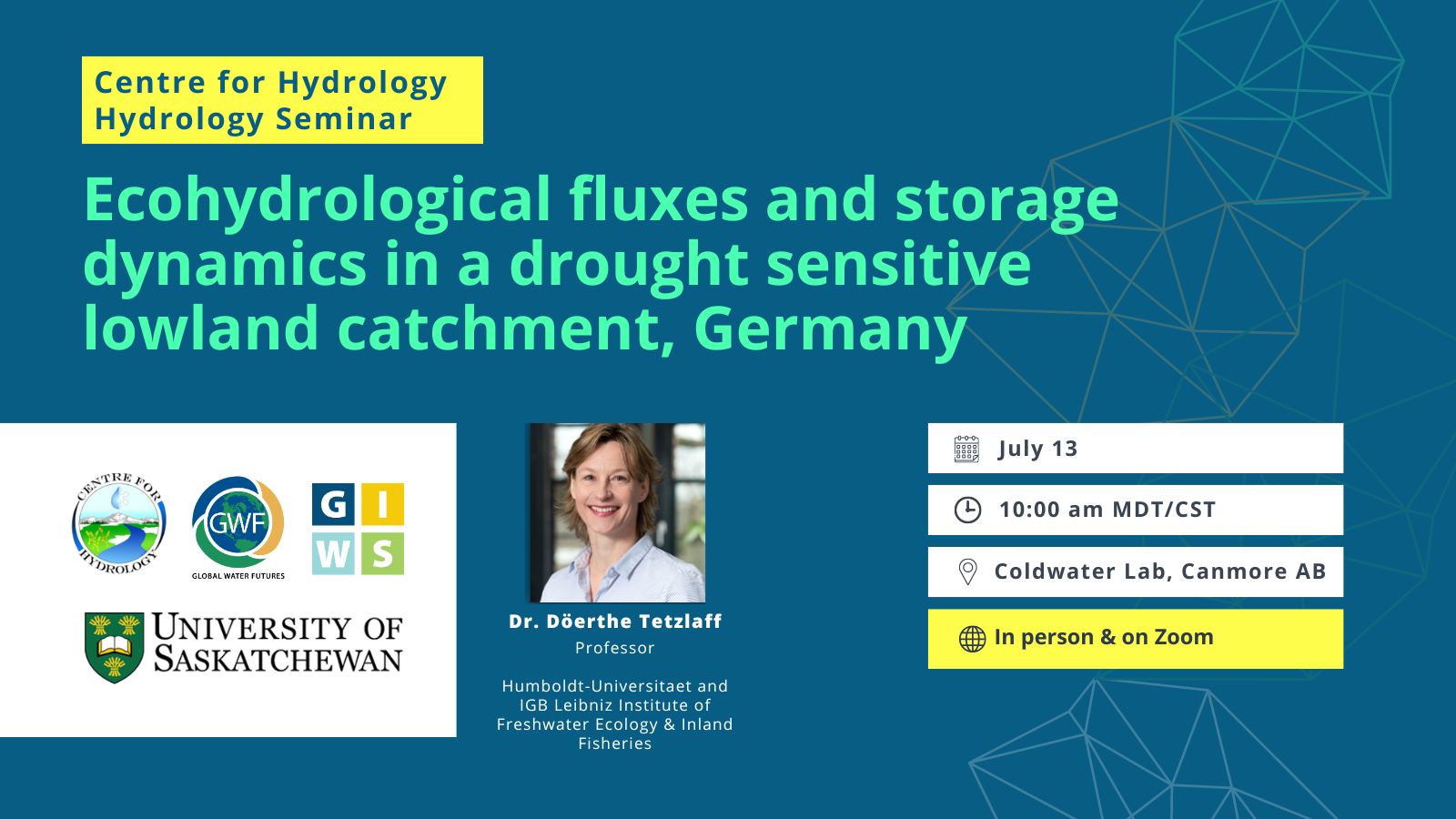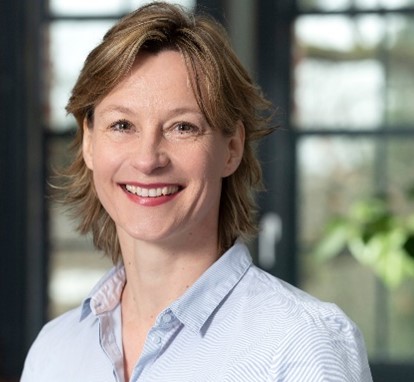Centre for Hydrology Seminar ft. Döerthe Tetzlaff
GWF Events
Ecohydrological fluxes and storage dynamics in a drought sensitive lowland catchment, Germany

Date: July 13, 2023
Time: 10:00 AM MDT/CST
Location: Coldwater Lab, Canmore, AB
In Person and on Zoom
(Registration required for Zoom)
Continuing negative rainfall anomalies, coupled with climate change projections of increased drought severity and frequency, drive an urgent need to increase resilience and integration in land and water management strategies in many regions of the World. However, complex interactions between landcover change, hydrological partitioning and water availability are difficult to quantify, especially at different temporal and spatial scales. This talk will present insights from integrated monitoring and modelling approaches from the long-term experimental catchment Demnitzer Mill Creek catchment, NE Germany. We combine stable water isotopes measured at different compartments of the critical zone and landscape with process-based tracer-aided models of different complexity to investigate and quantify ecohydrological fluxes and dynamics of water storage, pathways and ages. Such tracer-aided, ecohydrological modelling frameworks provide robust science-based evidence for policy makers allowing quantitative assessment of land use effects on water availability and effective communication with stakeholders. Our findings also underscore the urgent requirement for enhancing resilience and promoting integrated strategies in managing land and water resources to better respond to drought.
 Dr. Dörthe Tetzlaff
Dr. Dörthe Tetzlaff
Professor
Humboldt-Universitaet and IGB Leibniz Institute of Freshwater Ecology & Inland Fisheries
Doerthe Tetzlaff is Professor of Ecohydrology at the Humboldt-Universität zu Berlin and Head of Department “Ecohydrology & Biogeochemistry” at IGB Leibniz Institute of Freshwater Ecology and Inland Fisheries, Germany. Her research integrates insights from both field and modelling approaches with the basic aim of understanding the spatial and temporal variability of how catchments function hydrologically at different scales; understanding the physical processes that generate stream flow, and the way these processes influence the hydrochemistry and hydroecology of streams, to aid understanding of the sensitivity and ability of catchments to mediate implications of climate change. She also pursued a strong focus on international inter-catchment comparison; using insights from different geographical environments to synthesise a more holistic understanding of hydrological and ecological function. Her current focus is on ecohydrological investigations in the temperate biomes and hydroclimate of Central Europe and more anthropogenically influenced landscapes. She received her BSc from the University of Potsdam, her MSc from the University of Hannover, her PhD from the University of Freiburg (all Germany) and her DSc from the University of Aberdeen (UK). She is also the Editor-in-Chief of Hydrological Processes, Fellow of the American Geophysical Union, Fellow of the Royal Society of Edinburgh RSE, Fellow of the Geological Society of America GSA and Fellow of the European Academy of Sciences.
Event Details
- When:
- Time:
- 10:00 AM - 11:00 AM CST
- Location:
- Coldwater Lab (Canmore) & Zoom
